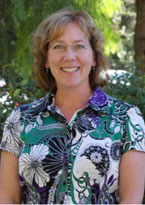Solving the work-life puzzle
 As the senior director of WorkLife Strategy for Stanford University, Phyllis Stewart Pires, MA, designs and manages programs and services that support the Stanford community in navigating the competing demands of work, study, personal and family lives. BeWell spoke with Pires to get her latest views on how we might better cope with the push and pull associated with hectic careers and equally busy lives outside of work.
As the senior director of WorkLife Strategy for Stanford University, Phyllis Stewart Pires, MA, designs and manages programs and services that support the Stanford community in navigating the competing demands of work, study, personal and family lives. BeWell spoke with Pires to get her latest views on how we might better cope with the push and pull associated with hectic careers and equally busy lives outside of work.
You spoke with us in 2013 to give us your take on balancing work and home demands (“Better work-life integration”). Has there been a shift in thinking about this issue in the last two years?
With our programs, services, and outreach, our WorkLife Office team touches thousands of members of the Stanford community. We continue to see an increase in people’s struggles with an ever faster pace and greater degree of complication in their lives. We are hearing the word “overwhelmed” more frequently from employees and seeing more eye-rolls when the term “work-life balance” is used. This is especially true when you factor in the pressures of affordability and pace of change here in the Valley.
A discussion about work-life balance can become very hypothetical. I’ve seen myself and others be more successful when focusing on the power of the practical; and even small changes in behavior can bring about significant change. There is no one-size-fits-all solution that releases today’s pressure valves on our lives. Fortunately, some relief can be found in relying on peers and building communites that support one’s life goals.
We see people pushing back against the intrusions of technology — while also embracing how it can increase flexibility and the control we have over our time. And people are starting to understand that being in “a constant state of overwhelm” gets in the way of our capacity for innovation and delivering on the mission of Stanford.
Most of us have many different hats that we need to wear in a given day — parent, sibling, employee, child, spouse. How do we decide how to spend our time in a way that will make us feel most satisfied?
I personally try to look at the wearing of these different hats throughout the day as an opportunity rather than a burden, so that my mindset is one of appreciation.
I suggest that people remember that no one day (or no one meltdown in the store!) defines us as parents. No one project (or harried deadline) defines our career, and no one decision (even if a bad one) defines our entire life. I also try to remind myself that tolerance for ambiguity — for life’s messiness — supports the ability to tackle complex challenges and come up with new solutions. On my tougher days, I try to remember that beyond the immediate moment, there’s something deeper to be gained by finding my way through whatever messiness I face.
Here are three of my favorite, and simple, ideas for reconciling the different roles and demands in our lives:
- Revisit your priorities as you have defined them – and if you haven’t revisited them in a while, see time spent on a refresh as a good long-term investment.
- Book time into your calendar for each of these roles – even if it is just the 15 minutes required to call your elderly parent and say hello.
- Ask those around you what they really want from you and when. Often it is not as much or as fast as we thought, and there may be more room for negotiation than we first assumed.
It's obvious that most of us can't do it all. How can we be OK with that?
I love this question! Whose definition of “all” are we using? Make sure it is the definition that you have chosen and continually refine as your life evolves. Avoid the temptation to let others define your “all.” The role models I admire most have taken the long view when it comes to this question. They recognize that there will be difficult choices throughout life and they have gotten comfortable with the idea that not much stays the same for long. In short, opportunities to redefine ourselves and our measures of success will present themselves again and again over time.
For high achievers, it’s important to distinguish between having high standards and pursuing perfection. One way to fight the temptation to be perfect is to think of the people you admire most and consider what they excel at, and what they have let go of. No one is perfect — or even good — at everything. In addition, some people might have let go of something you would be unwilling to lose, such as time to read or dedication to a sport or hobby. Prioritizing how we spend time is a large part of defining how the work and life parts of our days will interact and impact one another.
We've all had those days when everything has gone wrong: our child is sick, we have an important meeting at work, and our washing machine decides to break. Do you have any advice for how to survive those days?
Unfortunately, I think people tend to think that when such things happen, it must be the moment to make a life-changing decision. Things feel so out of control; surely such a change would help? But I recommend putting off major life decisions on these days — not as an avoidance tactic, but rather to prevent making a reactive decision. Perhaps a worthwhile change in your schedule, relationships or routine might truly be the answer, but make such a change on a calmer day.
Setting aside the big questions and self-doubt that can plague us on these days also allows us to narrow down our focus to the moment or “crisis” at hand. I also suggest a really basic idea that so many of us struggle with: ask for help. Activate your support network. Often, on these kinds of days, people try to avoid letting others see the reality of their situation. However, opening up with your true supporters can bring simple acts of kindness and help from even unexpected corners.
Finally, it’s impossible to overstate the value of humor. There are days when really the only appropriate reaction is to laugh. One trick that sometimes helps is to step outside the moment and imagine how you’ll look back on it much later on. This helps to regain perspective and even to see the humor of the situation.
… any final thoughts?
I want to emphasize that work-life issues are relevant to everyone — from department heads and students to parents and non-parents. If you want to manage a great team, then these ideas can be game-changing. If you want to innovate, they’re important for you, too. Stanford offers diverse services to a diverse community — to caregivers of all types, ages and life stages — and our continual effort to re-define what “work-life balance” means puts us in touch with an ever-expanding population.
Many of those who find more balance (however they define it) tend to be the ones who challenge assumptions. For example, they are willing — and skilled enough — to ask a manager, who regularly emails on weekends, when an immediate response is expected or needed, and when it is not. They dare to come up with new ways of managing their life and work.
No one, of course, has found all the answers. We see those we serve as partners in an ongoing exploration, and we’re eager to hear your ideas and feedback. I also invite everyone to check out our programs. Over the next year, we’ll be talking about many of these ideas in more depth. In addition to offering support, we want to engage in a conversation with the Stanford community about how all of us can succeed in navigating the different dimensions of our lives.
